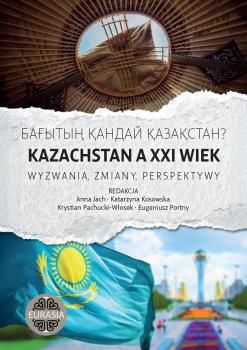Kazachstan a Organizacja Układu o Bezpieczeństwie Zbiorowym – historia i teraźniejszość .......... 401
Synopsis
KAZAKHSTAN AND THE COLLECTIVE SECURITY TREATY ORGANIZATION – HISTORY AND THE PRESENT
The process of the collapse of the Soviet Union entailed a number of consequences on a global scale. One of the most significant was the dissolution in 1991 of the Warsaw Pact, the USSR’s military counterweight to NATO. This does not mean that the newly formed Russian Federation gave up its desire to maintain a polarized, bipolar geopolitical division of the world. The former Soviet republics, as newly formed state entities, spontaneously or under pressure from Moscow, began to organise themselves into new political, economic and military blocs. As a consequence of these activities, the creation of the Commonwealth of Independent States as an alternative to the then European Economic Community was initiated as early as 1991. In the area of security, on the other hand, a military bloc called the Collective Security Treaty Organisation was established on the basis of the so-called Tashkent Treaty in 2002. The Republic of Kazakhstan, with significant economic and military potential, has also joined both organisations. At the same time, the legacy of the USSR in the form of the dislocation on the territory of this republic of part of the Russian nuclear arsenal with the nuclear training ground in Semipalatinsk, the Baikonur cosmodrome and a large amount of military equipment and technology was a significant factor influencing the role and importance of Kazakhstan in the system of collective defence of the Russian Federation.





